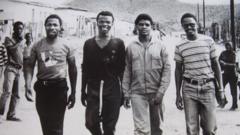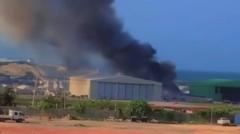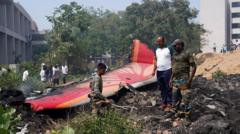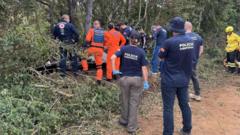The country seeks to address allegations of unfulfilled justice for the victims of apartheid as it acknowledges a long-standing demand for accountability over historical crimes from the past.
Judicial Inquiry Announced in South Africa to Investigate Apartheid Crimes

Judicial Inquiry Announced in South Africa to Investigate Apartheid Crimes
South Africa's government initiates an inquiry into supposed political intervention impeding justice for apartheid-era offenses.
South African President Cyril Ramaphosa has declared a judicial inquiry aimed at probing allegations of political interference that hindered the prosecution of crimes committed during the apartheid era. This move comes 30 years after the dismantling of white-minority rule, following a lawsuit from victims' relatives and survivors who claim the government has failed to deliver adequate justice.
The Truth and Reconciliation Commission (TRC), established in 1996, revealed many instances of brutalities associated with apartheid, including murder and torture. However, few cases have advanced to trial. The inquiry is a response to settlement discussions in a high court case where 25 families and survivors are suing the government for approximately $9 million (£6.8 million), asserting that post-apartheid administrations did not adequately investigate these crimes.
In his announcement, Ramaphosa expressed his commitment to uncovering "the true facts" and bringing closure to the matter. Among the plaintiffs is the son of Fort Calata, one of the "Cradock Four" anti-apartheid activists who was murdered by security forces in 1985. Though six police officers confessed to the TRC about their involvement in the murders, they were never prosecuted, and all have since died without facing justice.
Critics have long alleged that the African National Congress (ANC), the ruling party, struck a secret arrangement with the previous white-minority government, which stifled prosecutions of apartheid-era crimes. The ANC has consistently denied these accusations. The presidency has acknowledged persistent allegations of improper influence concerning the delays in investigating and prosecuting these significant historical crimes, signaling the need for accountability from past administrations.
The announcement did not specify the head or the timeline for the inquiry but confirmed that details will be revealed shortly. This judicial inquiry presents a new avenue for redressing historical grievances and seeking justice for victims of apartheid in South Africa.






















